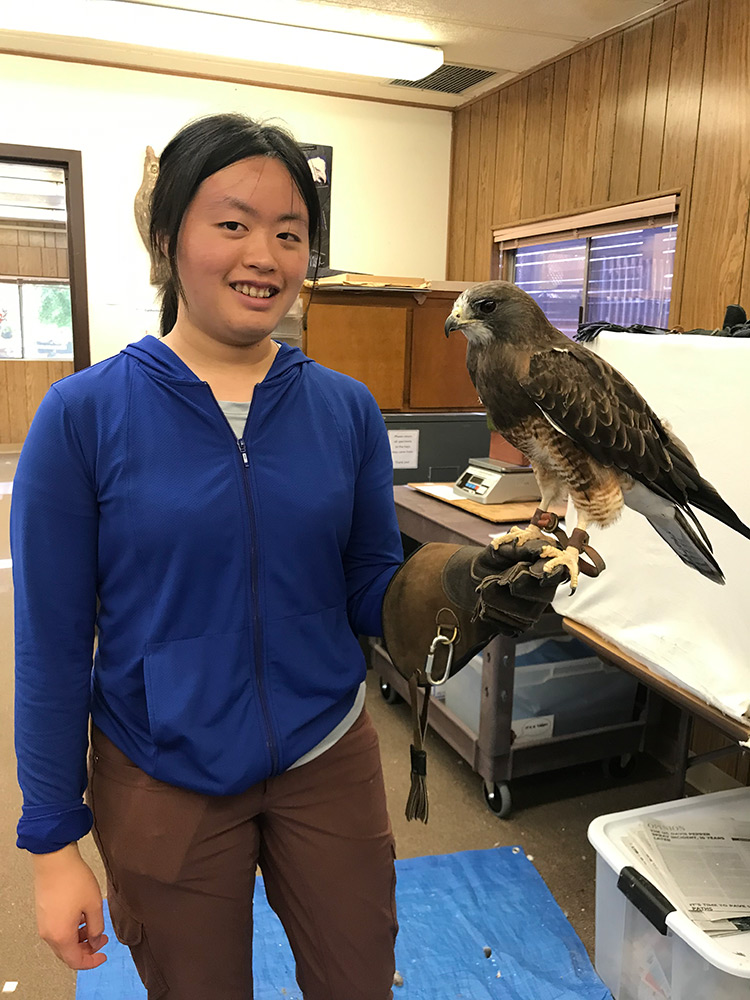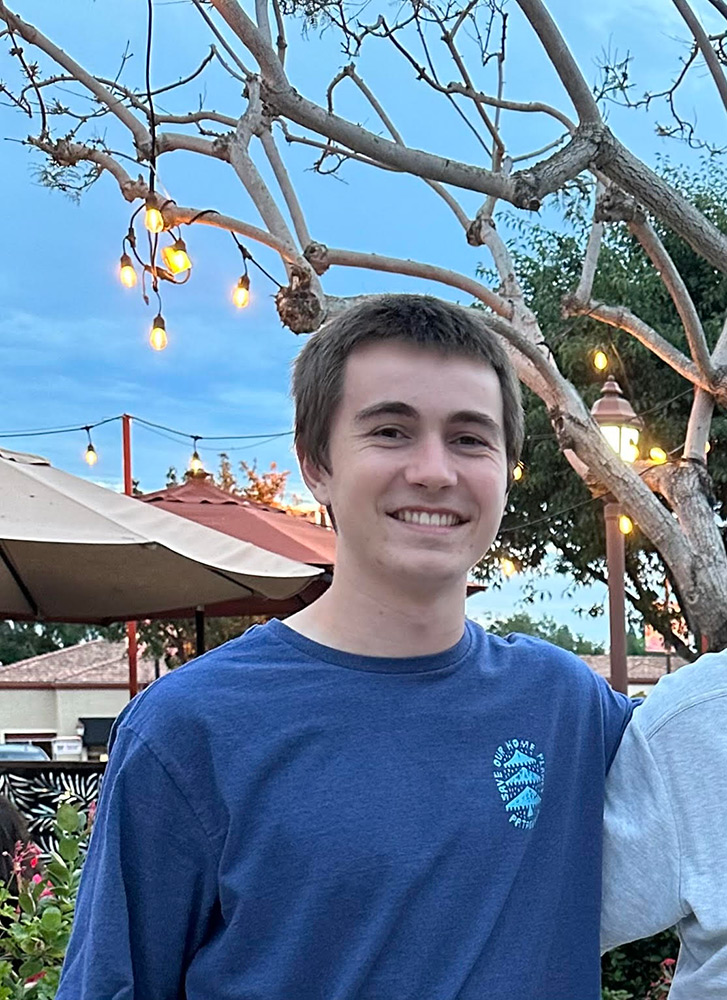Stefan Rothenburg, M.D., Ph.D.

Professor
3141 Tupper Hall
Davis Campus
rothenburg@health.ucdavis.edu
Host-Virus Interactions and Evolution
The host innate immune system plays essential roles in detecting invading viruses and in initiating and orchestrating antiviral responses. To establish productive infections, it is essential that viruses effectively inhibit this host response. These conflicting interactions have led to evolutionary arms races between the hosts and the viruses.
The Rothenburg lab focuses on the interaction between viruses and the immune system of their hosts. We are especially interested in how these interactions influence the host range and virulence of viruses. We are studying how viral nucleic acids are detected in vertebrates, which antiviral pathways are activated, and how viral molecules interfere with these processes. Understanding these interactions will lead to important insights into the role of species-specific interactions of the innate immune system with viral modulators, which is relevant for the understanding of virus host range and virulence and lay the foundation for a better prediction of which viruses pose significant future threats.
One key immune antiviral protein that we are studying is the protein kinase PKR. PKR detects virus infections by recognizing viral double-stranded RNA, which is formed during virus replication. Activated PKR phosphorylates the translation initiation factor eIF2a, which leads to the general suppression of protein synthesis and the upregulation of stress-responsive proteins and genes. In order to evade the antiviral effects of PKR, viruses have evolved a plethora of different genes, whose products inhibit PKR activation and activity. We are studying the mechanisms by which these viral molecules inhibit PKR and if they differentially inhibit PKR from various mammalian species.
In related projects, we are elucidating how poxviruses evolve on the genomic level in order to adapt to new hosts and how they acquire novel genes from their hosts. We are harnessing this knowledge to engineer poxviruses with enhanced capabilities to selectively destroy cancer cells and to create proteins with enhanced antiviral activity that will help to prevent the transmission of viruses from animals to humans and to other animals.
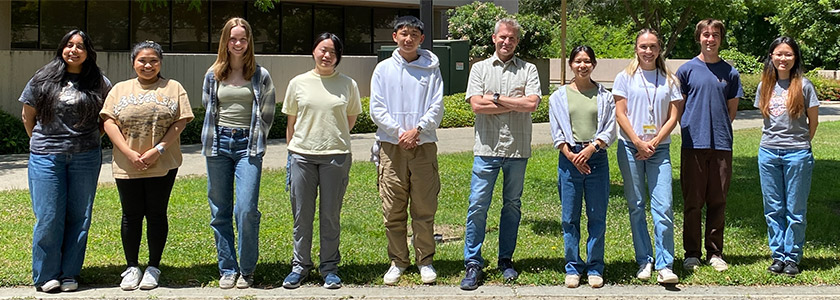

Greg Brennan, D.V.M., Ph.D.
Project Scientist
Rm 3224 Tupper Hall
Davis, CA 95616-5271
gbrennan@ucdavis.edu
About me: I am a veterinarian and molecular biologist focused on the cross-species transmission of viruses. Over my 20-year career, I have studied both DNA and RNA viruses in both BSL-2 and BSL-3 laboratory settings. Through this work, I have developed expertise in the molecular analysis of viral evolution. My current work explores aspects of the genetic and biochemical basis by which viral and host factors evade or inhibit one another.

Dewi Megawati, Ph.D.
Postdoctoral Fellow
Rm 3130 Tupper Hall
Davis, CA 95616-5271
amegawati@ucdavis.edu
About me: I am currently a postdoctoral scholar in the Rothenburg lab. I am interested in studying host-pathogen interactions, vector-borne diseases and molecular virology. I received a Ph.D. in microbiology from the University of California Davis in 2022. During my doctoral research in the Rothenburg lab, we generated patentable antiviral proteins called Recombinant Enhanced Antiviral Restrictors (REAVRs), which were highly effective in inhibiting replication of multiple virus families. My current research focuses on investigating the molecular mechanisms of how poxviruses acquire host genes and determine how these newly acquired genes evolve to provide a selective advantage to the poxviruses. I love baking and cooking in my free time.
 Click on the image to enlarge.
Click on the image to enlarge.
Chi Zhang
Graduate Student, Biochemistry, Molecular, Cellular and Developmental Biology Graduate Group
Rm 3130 Tupper Hall
Davis, CA 95616-5271
chizhang@ucdavis.edu
About me: I received my Bachelor's degree at UC Davis majoring in Biochemistry and Molecular Biology and Computer Science. My research interest lies in host-pathogen interaction and the molecular basis of their arms race. I joined Rothenburg Lab in 2021. My project focuses on a novel bat poxvirus Eptesipox virus and I am working on characterizing the functions and activities of the viral protein K3 and E3's on how they inhibit host innate immune pathways. In my spare time, I enjoy spending time with my cat and cooking.

Erin Markle
Graduate Student, Microbiology Graduate Group
Rm 3130 Tupper Hall
Davis, CA 95616-5271
edmarkle@ucdavis.edu
About me: I received my B.S. in Microbiology from Colorado State University, where I worked in the Arthropod-Borne and Infectious Disease Laboratory with a focus on characterizing virus-mosquito vector interactions. I then received my M.Sc. in Veterinary Medicine from the University College Dublin and explored the emergence of a flavivirus, Usutu virus, in Europe. Currently, I am a Microbiology Ph.D. candidate with my thesis centered on generating recombinant antiviral proteins to restrict virus replication. Outside of the lab you can find me at the dog park with my adorable Aussie-doodle Oliver, playing soccer, or in Tahoe snowboarding most weekends in the winter.
 Click on the image to enlarge.
Click on the image to enlarge.
Mindy Lago Fernandez
Graduate Student, Graduate Group in Immunology
Rm 3130 Tupper Hall
Davis, CA 95616-5271
melfernandez@ucdavis.edu
About me: I am part of the UC Davis' Graduate Group in Immunology. Before my graduate studies at UC Davis, I was an undergraduate researcher at UC Merced where I had the privilege to work on many different research projects including studying the evolution of lizard color polymorphisms and different host responses upon toxoplasma gondii infection. I joined the Rothenburg lab in 2023 where I study the interactions and coevolution of rabbit poxviruses and their hosts. I like to think that my current research is somewhat of a nice mixture of ideas from my previous research experiences! In my free time, I like to do different activities with people like hanging out with friends, volunteering for different events, organizing dinners, etc. I've also been recently obsessed with making legos and puzzles!
 Click on the image to enlarge.
Click on the image to enlarge.
Hikari Seo
Rotation Graduate Student, Microbiology Graduate Group
Rm 3130 Tupper Hall
Davis, CA 95616-5271
hiseo@ucdavis.edu
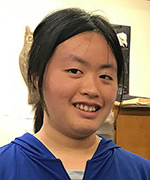 Click on the image to enlarge.
Click on the image to enlarge.
Michelle Azuma
Undergraduate Student
Rm 3130 Tupper Hall
Davis, CA 95616-5271
mkazuma@ucdavis.edu
About me: I am currently a 4th year undergraduate at UC Davis majoring in Biochemistry and Japanese. I joined the lab in 2024, and the current project I am working on is characterizing recombinant enhanced antiviral restrictor (REAVR) proteins in response to mosquito-borne viruses. On my downtime, I like to read, play video games, and try getting first place in Tetris 99.
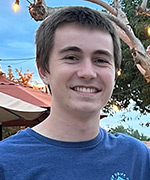 Click on the image to enlarge.
Click on the image to enlarge.
Kyle Heye
Undergraduate Student
Rm 3130 Tupper Hall
Davis, CA 95616-5271
krheye@ucdavis.edu
About me: I am currently working towards a Bachelor’s degree in Genetics and Genomics here at UC Davis. I am easily inspired by all sorts of things in biology, but in particular I’m very interested in viral evolution and genetics. In the lab, I will be assisting Chi in her projects including characterizing the immune evasion of Eptesipox virus. Outside of the lab you can find me playing bass, rock climbing, and enjoying the outdoors (but mostly studying).
 Click on the image to enlarge.
Click on the image to enlarge.
Shaina Rahman
Undergraduate Student
Rm 3130 Tupper Hall
Davis, CA 95616-5271
strahman@ucdavis.edu
About me: I am currently an undergraduate student here at Davis majoring in Medical and Molecular Microbiology! I recently joined the lab to assist Mindy with her project involving Leporipoxviruses in rabbits. My research interest similarly lies in studying host-pathogen interactions and co-evolution of viruses and their hosts. Outside the lab, I am involved in a student-run clinic and I also like to take walks and read.
Former Graduate Students
Nikolaus Deigendesch, M.D., Ph.D., University of Hamburg, Germany (2003-2007)
Most Recent Position: Senior physician, University Hospital of Basel, Switzerland
Chen Peng, Ph.D., Kansas State University (2011-2016)
Most Recent Position: Professor, College of Veterinary Medicine, China Agricultural University
Sherry L. Haller, Ph.D., Kansas State University (2011-2016)
Most Recent Position: Associate Director of the Center for Biodefense and Emerging Infectious Diseases, University of Texas Medical Branch at Galveston
Julhasur Rahman, Ph.D., University of California, Davis (2015-2021)
Most Recent Position: Scientist, BioMarin Pharmaceutical Inc.
Chorong Park, Ph.D., University of California, Davis (2016-2021)
Most Recent Position: Post-doctoral Fellow, Northwestern University
Huibin Yu, Ph.D., University of California, Davis (2016-2021)
Most Recent Position: Post-doctoral fellow, National Institute of Allergy and Infectious Diseases
Dewi Megawati, Ph.D., University of California (2018-2022)
Most Recent Position: Post-doctoral fellow, University of California, Davis
Sameera Vipat, M.S., University of California, Davis (2016-2018)
Most Recent Position: Graduate student, Tallinn University of Technology, Estonia
Jeannine Nicole Stroup, M.S., University of California, Davis (2019-2022)
Most Recent Position: Senior Research Associate at Novogene
Former Post-doctoral Fellow
Ana Stoian, Ph.D. (2020-2022)
Most Recent Position: Group Leader, University of Lleida, Spain






